GCSE Physical Education
Overview
Intent
At Fulbrook School we aim to deliver high-quality teaching and learning opportunities that inspire all students to succeed and adopt a love for sport and physical activity. We strive to stimulate our students through engaging and exciting Physical Education lessons that are accessible, enjoyable and challenging. We believe that students should have the opportunity within Physical Education to develop themselves physically, socially and emotionally. We want to teach students how to cooperate and collaborate with others, as part of a team, understanding fairness, resilience and equity of play to embed life-long values. Fulbrook instils respect, tolerance and veneration of others and themselves through a diverse and comprehensive Physical Education curriculum.
The Fulbrook Physical Education department offer sensational extra-curricular opportunities during lunch times and after schools, which are open to all year groups. These give students the chance to develop their skills and techniques further and, if the students want to, they can represent the school at local fixtures and competitions that target students of all ages and abilities. Fixtures incorporate play, learn, develop and compete events that offer differ experiences and pathways post fixtures.
Implement
The Fulbrook Physical Education department pride themselves on delivering high quality lessons weekly. Our curriculum programme incorporates a diverse selection of sporting activities that is inclusive yet stimulating for all students. With well-structured lessons, students can engage and thrive within the subjects learning environment. Our PE curriculum is dynamic and transitional as the students move up through the school. In all lessons we embed fundamental skills, knowledge and principles across an extensive range of activities.
We recognise that PE lessons should be enjoyable so that our students can foster a lifelong passion for physical activity and sport. We encourage confidence and appreciation of their own ability and progression within PE. Teachers are experienced within a multitude of areas within the curriculum and are always endeavouring to learn new practices to augment their subject knowledge.
Impact
Our Physical Educational curriculum aims are to improve the mental and physical wellbeing of all students at Fulbrook School, not only through the sporting skills taught, but also through the underpinning values and disciplines PE promotes. Students are educated on self-discipline and are taught that to be successful within sport and physical activities, you need to take ownership and responsibility of your own health and fitness. Our goal is to encourage students to use these foundational skills in a self-directed and successful manner in order to live happy and healthy lives.
Aims for Physical Education at Fulbrook
-
For each student to enjoy being physically active and for them to adopt a lifelong passion for physical activity and sport.
-
Students develop their confidence and knowledge in a range of sports and physical activities. Students are given opportunities to lead, support and officiate in a range of physical activities.
-
Students develop a range of fundamental skills which can be applied across different physical activities and sport.
-
Experience a wide range of sports and physical activities in both lessons and extra-curricular clubs that fully enrich all students.
-
To promote inclusion and equity through sports and physical activity.
GCSE Physical Education
At Fulbrook School, the Physical Education curriculum area has chosen to follow the AQA specification for GCSE PE. A breakdown of how the course is structured is below, with the course being broken down into four key areas (two exams, one coursework unit and a practical assessment). You will notice there is a heavy influence on sport sciences, which are assessed through written examinations. It is expected that you attend extra-curricular clubs and play sport outside of school with such an emphasis on practical performance.
Learning outcomes
AO1: Demonstrate knowledge and understanding of the factors that underpin performance and involvement in physical activity and sport.
AO2: Apply knowledge and understanding of the factors that underpin performance and involvement in physical activity and sport.
AO3: Analyse and evaluate the factors that underpin performance and involvement in physical activity and sport.
AO4: Demonstrate and apply relevant skills and techniques in physical activity and sport. Analyse and evaluate performance.
The course will be structured so that at the end of the two years students will sit, two theory exam papers (60% of total grade) and be assessed in three different sporting areas (performance or coaching), worth 40% of the total mark.
The exam papers would include:
Paper 1: ‘The human body and movement in physical activity and sport’ (30%)
Paper 2: ‘Psychology, socio-cultural influences and well-being in physical activity and sport’ (30%)
The theoretical aspects of the course would be taught in a classroom through a number of differentiated tasks, with regular assessment and home learning being set to assess progress and develop understanding of the topics.
The practical programme would remain flexible depending on the cohort being taught and the sporting focus would be down to the teacher in charge of the group. Assessment would take place for a number of different individual and team activities in performance and / or coaching with three best areas of activity selected for final assessment and moderation.
Students who chose to study the GCSE course would be expected to participate in at least one sport from the prescribed list outside of school and would be encouraged to provide video evidence as a working log of attainment and progress that could be used as an ‘external assessment’.
All practical assessment would undergo rigorous internal moderation followed by an external moderation day, led by an AQA examiner.
An overview of the Practical Assessment can be seen below. For more details google AQA GCSE physical education 2016 specification.
- All students will be assessed in 3 different physical activities
- All students will be assessed in; one team sport, one individual sport, and a further sport from either category (team or individual)
- For each sport students will be scored out of a maximum of 25 marks.
PART 1: the first part of assessment focuses on the student’s ability to demonstrate skill through drills in isolated progressive practices (10 marks)
PART 2: the second part of assessment focuses on the student’s ability to perform skill in a full context situation i.e. a game, match or performance (15 marks)
- In one sport, students complete an analysis and evaluation of performance task. In this sport students will be awarded a maximum of 25 additional marks.
- In total students will receive a mark out of 100 for their practical performance, including their analysis task
|
Team Sports |
Individual Sports |
|
Football |
Athletics |
|
Badminton |
Boxing |
|
Basketball |
Badminton |
|
Camogie |
Canoeing/Kayaking (Slalom) |
|
Cricket |
Canoeing/Kayaking (Sprint) |
|
Dance |
Cycling |
|
Gaelic Football |
Dance |
|
Handball |
Golf |
|
Hockey |
Platform Diving |
|
Hurling |
Artistic Gymnastics |
|
Lacrosse |
Equestrian |
|
Netball |
Rock Climbing |
|
Rowing |
Sculling |
|
Rugby League |
Skiing |
|
Rugby Union |
Snowboarding |
|
Squash |
Squash |
|
Table Tennis |
Swimming |
|
Tennis |
Table Tennis |
|
Volleyball |
Tennis |
|
|
Trampolining |
NB: Students cannot do two variations of the same sport, for example a single tennis performer cannot also be assessed in doubles tennis as a team sport.
GCSE Physical Education Information Sheet
Click to download our GCSE Physical Education Information Sheet
Video of our Sports Facilities









